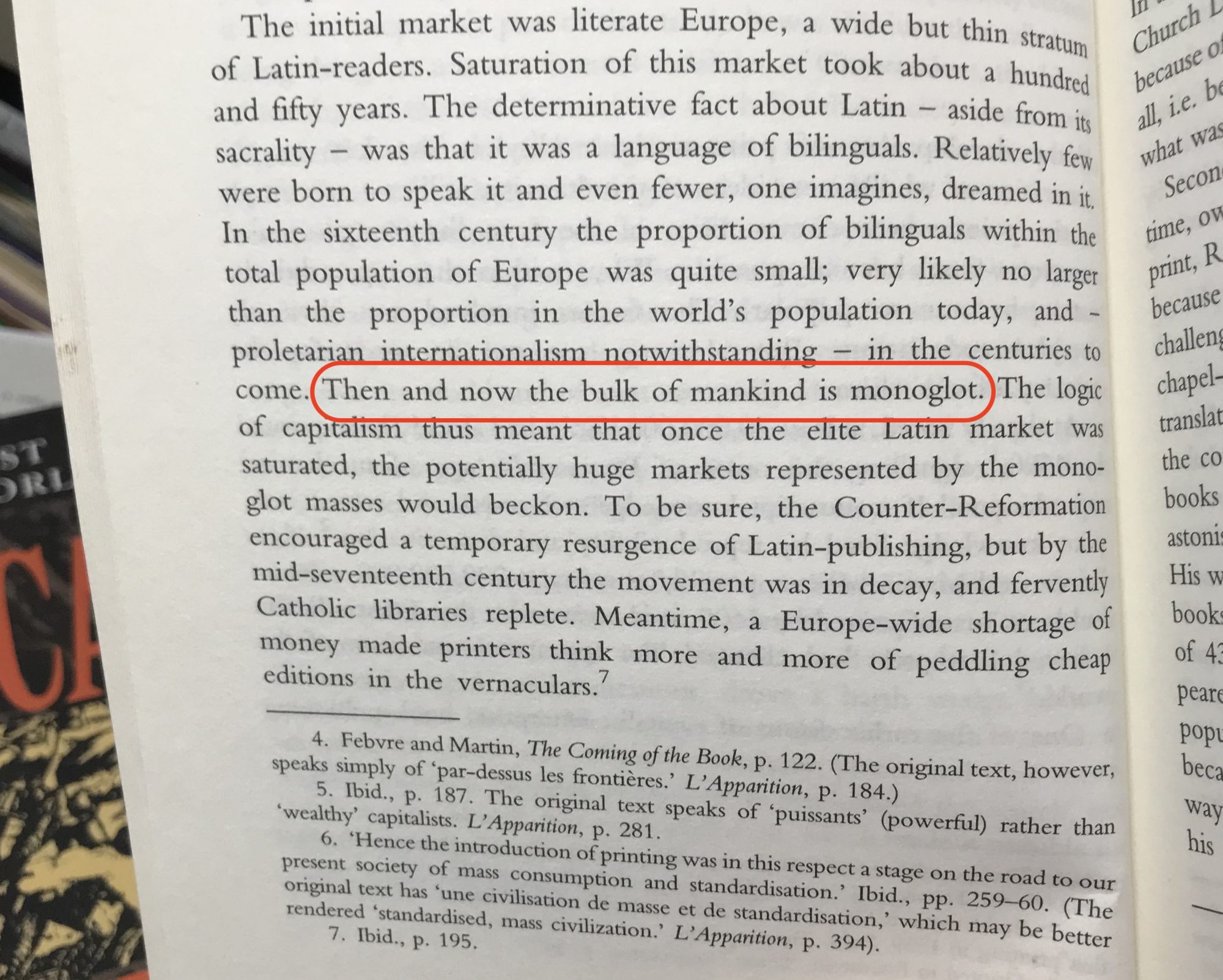Last month I blogged this essay, “Language, empire, nation, state”, in which I was exploring the relationships among the emergence of “nation” states in each of Portugal and Spain, the solidification of the two post-Latin languages in each of those polities, and the building by each of their leaders of transoceanic empires. In it, I challenged the fairly well-known thesis of the Irish sociologist Benedict Anderson that it was the emergence of “print capitalism” in Europe that led to the emergence of nation-states, giving a preliminary look at evidence that: (1) it was the building of these two empires that spurred the solidification and formalized writing-down of these two languages; (2) the administration of each empire required the building of a more or less centralized state in its metropole, which also used the empire’s language for its administration; and (3) this whole process took place under the control of these empires’ respective monarchs.
At the time, I didn’t have to hand a copy of the main work in which Anderson had propounded his thesis. I since got one from a local public library. My God, he is wrong on so many counts. Chapter 3, “The Origins of National Consciousness”, is the key chapter in which he lays out his “print capitalism caused the emergence of nations” thesis, and it is riddled with error after error after error. Many of these errors seem to stem for his reliance on a book called The Coming of the Book: The Impact of Printing, 1450-800 by two French authors, Lucien Febvre and Henri-Jean Martin, translated from their original French version. But this howler noted here seems to be his alone:

As soon as I read that, I thought he was writing a lot of BS. So I went and checked what the worldwide stats/estimates of the incidence of monolingualism actually are. All the sources I found online seem roughly in line: that around 40% of humans are monolingual; 43% are bilingual; 13% are trilingual; and the rest (4%) speak four or more languages fluently. Okay, so when he wrote Imagined Communities in 1983, he didn’t have access to the internet. But he was a sociologist with a long record of having worked in East Asia and Southeast Asia. How on earth did he get the idea “the bulk of mankind is monoglot”? It’s not true in East Asia, most countries of the global South, or Western Europe– today, or back then.
His next chapter, “Creole Pioneers”, also seems to me to be marred by deep conceptual flaws.
Mainly, I’m just ventilating here. I also admit to some disappointment, because I really liked his book when I first read it. Now, anyway, it’s due back at the library. I shall not be buying my own copy to replace it.